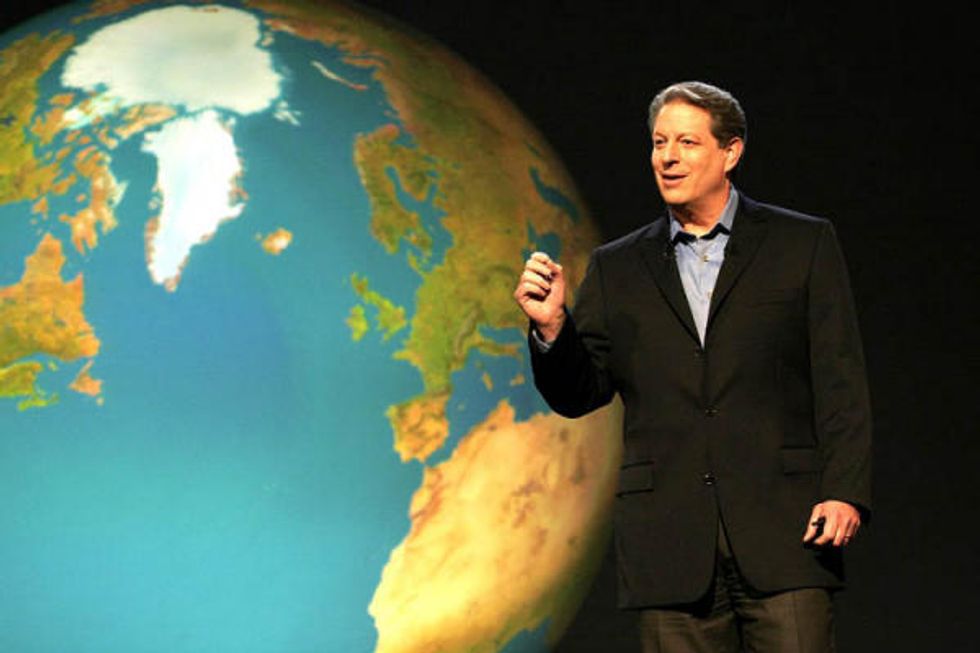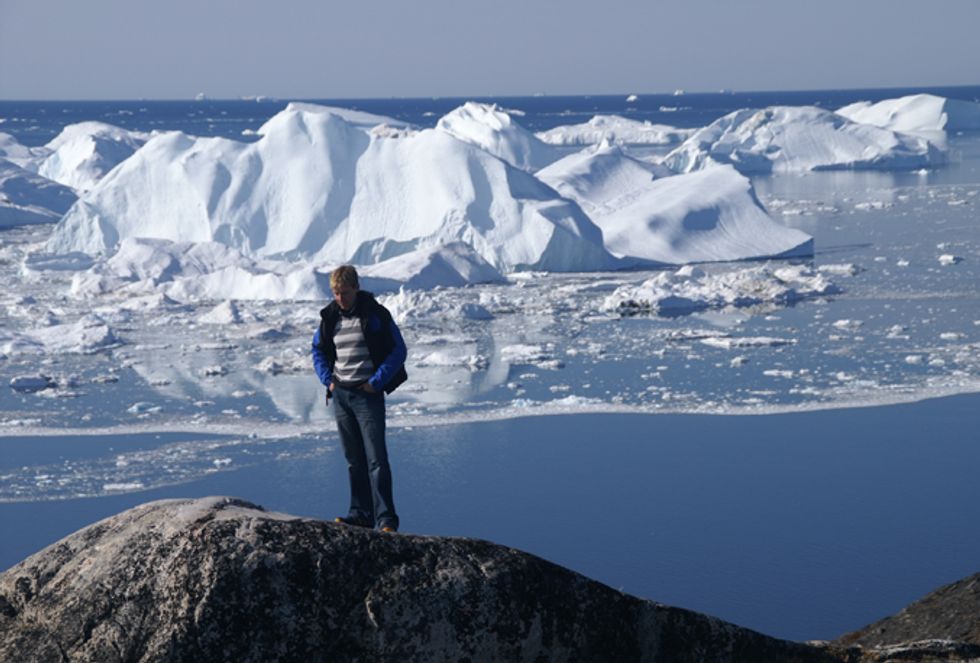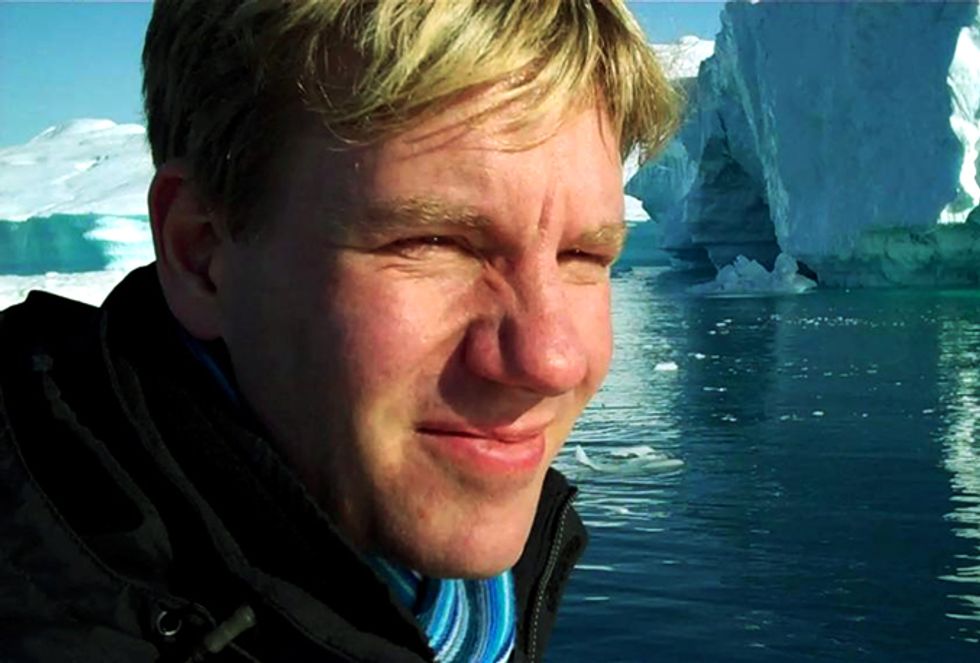In the five years since An Inconvenient Truth turned former presidential hopeful Al Gore into a celebrity environmentalist and helped make the future of our planet a chief concern in the minds of moviegoers and voters alike, significant progress in the fight against global warming and carbon emissions has proven elusive.
The root of the problem is no longer awareness, of course. Thanks in part to Gore, global warming is now a widely acknowledged crisis in the making, and those who continue to deny its existence may be losing their place in the conversation. Whether Truth offers an accurate depiction of our planet’s future, or relies too heavily on alarmist scare tactics, is one of the questions posed in Ondi Timoner’s new documentary Cool It.
Playing Saturday at the Menlo-Atherton Performing Arts Center as part of this year’s Windrider Film Forum, Cool It is inspired by the writings of Bjørn Lomborg, the controversial Danish statistician and scientist who earned international acclaim – or, in some corners, infamy – for his 1998 book The Skeptical Environmentalist.
In his 2007 follow-up, Cool It: The Skeptical Environmentalist’s Guide to Global Warming, on which Timoner’s film is based, Lomborg rails against inefficient solutions to climate change, including the Gore-endorsed Kyoto Protocol, which, Lomborg claims, would funnel billions into programs whose long-term impact on the planet would be negligible.
Naturally, he has no shortage of detractors, who have either willfully twisted his message – in some cases, branding him a global-warming denier – or taken him to task for bad science and flawed conclusions. Cool It gives Lomborg a high-profile platform for his message, but as producer Terry Botwick (TV’s Zorro) is quick to point out, neither Lomborg nor Gore should be considered the last word in a debate of such critical importance.
On Truth and the current state of the climate-change debate:
TB: “It’s certainly true that Al Gore brought the weight of his celebrity to An Inconvenient Truth, and maybe he sincerely believed that creating panic was the only way to inspire some movement on a problem that should be addressed. But the movie offered no real solutions. The most you could take away from it was not to use light bulbs, which is hardly the answer.
“The other thing that is a little frustrating is that the whole debate has been so polarized, and with a very conservative Congress in the U.S. right now, anything related to an aggressive energy policy is off the table. Where Cool It might have had an opportunity to play an important role in brokering a point of view that both sides could move toward, now there’s little chance of that because the debate has been pushed aside.”
On whom to trust in the global-warming debate:
TB: “I’m not sure anybody should blindly believe Al Gore, Bjørn Lomborg or anyone else on the topic. The goal is to educate yourself enough to arrive at your own point of view about the science. Personally, and perhaps as opposed to the position the movie takes, I see that the last eight presidential administrations in this country have been promising to wean us off our dependence on foreign fuel, and nothing has been done. For decades now, there have been attempts to advance some sort of carbon-reduction program, and again, nothing has really been done. The only place that currently legislates carbon reduction is the U.K.
“So we’re spending $250 billion a year to reduce carbon emissions, and we’re doing no good whatsoever. And no matter how fast we reduce them, there’s no way we could keep up with India and China’s emissions. When you put all that stuff together, it just seems logical that, for all sorts of reasons – planetary science, national security, pollution – we should move to some new source of energy on this planet. The smart thing to do is invest in that, and find something renewable, like solar energy or some combination of alternatives, that’s cheaper than fossil fuels.”
On the future of climate-change legislation and the public’s perception of global warming:
TB: “I don’t see much progress being made. There’s a stalemate right now. People are fearful about climate change. I don’t think we need to be fearful, but we need to be smart. Even the biggest climate alarmists, like [NASA Institute for Space Studies chief] James Hansen, who’s sort of the godfather of climate alarmism, when I interviewed him and tried to press him on what’s going to happen and when, even in his most extreme scenario there’s 40 or 50 years before he could see any impact to the climate that would be a real problem.
“That gives us 40 or 50 years to migrate on to some new energy source. It took us 50 years to move from coal to oil, and it might take us 50 to move from oil to solar. One of the things I took away from making this movie is how incredibly inspiring these scientists are who are working on world-changing technologies. We’ve only scratched the surface, but with a little funding there’s no doubt in my mind that human innovation will be the answer to this problem and many others, just as it always has been.
“This whole Tea Party movement has forced a complete focus on spending in this country. What that says is that if people would speak clearly and loudly enough, the government will be forced to listen. There’s all sorts of good reasons to find new energy sources and devote money to that cause, so we need to force the government to act.”
On whether the environment should be our first priority when it comes to spending:
TB: “I certainly don’t think it should be our highest priority, but I think it should be a priority. We need to care for the planet. The single biggest problem on the planet is poverty, and if we could alleviate it – keep people fed, give them clean water and effectively combat disease – then people will lead healthy and fruitful lives, and a lot of them will become part of the solutions to many different problems.
“For Al Gore to point people toward spending literally trillions of dollars to reduce the temperature by less than one degree 100 years from now is almost immoral when you look at the level of human suffering that exists right now.”
On the very public campaign to discredit Lomborg:
TB: “It’s a shame that Bjørn has suffered so much at the hands of people who simply don’t want to let him into the club because his education came from a different angle. That’s just silly. I don’t really care what they call Cool It so long as they watch it and come up with an opinion. Sometimes extreme rhetoric actually helps fuel interest, and I’m all for anything that gets this debate more into the public discourse.”
On his own political persuasions:
TB: “I’d describe myself as pretty middle-of-the-road. I tend to have social concerns that you wouldn’t think of as typical of a right-leaning person, but I’m fiscally conservative. At the end of the day, I see the world as being filled with a lot of imperfect solutions. For instance, if there’s poverty in the world, I think it’s much better if neighbors reach out to neighbors, if people help with what they can through direct contact.
“I don’t believe in big-government solutions. But if we’re not going to solve the problem any other way, I’d rather see the government step in. I’d rather have human suffering alleviated, even if it’s done in an inefficient, imperfect manner, than have nothing done at all. So though I tend to be conservative, I don’t think the environment should be a partisan issue.
“We used to have an invested tax credit in this country, and I’d love to see something like that employed again to encourage research and development of alternate energy sources. If you’re going to invest today in something that doesn’t pay off for 10 to 15 years, you have to create a structure that gives people incentive to make those investments.
“So maybe the solution comes through the tax system. That’s one way in which I think the government could get involved and encourage a lot of people to be striving toward solutions – to create competition in the marketplace and find better answers faster. That to me is far preferable than the government trying to solve the problem through direct funding.”
The Windrider Film Forum will present Cool It on Saturday, April 30, at 7 p.m. at the Menlo-Atherton Performing Arts Center in Atherton. Botwick and co-producer Ralph Winter will host. The movie is also available on DVD and via iTunes for instant download.
























